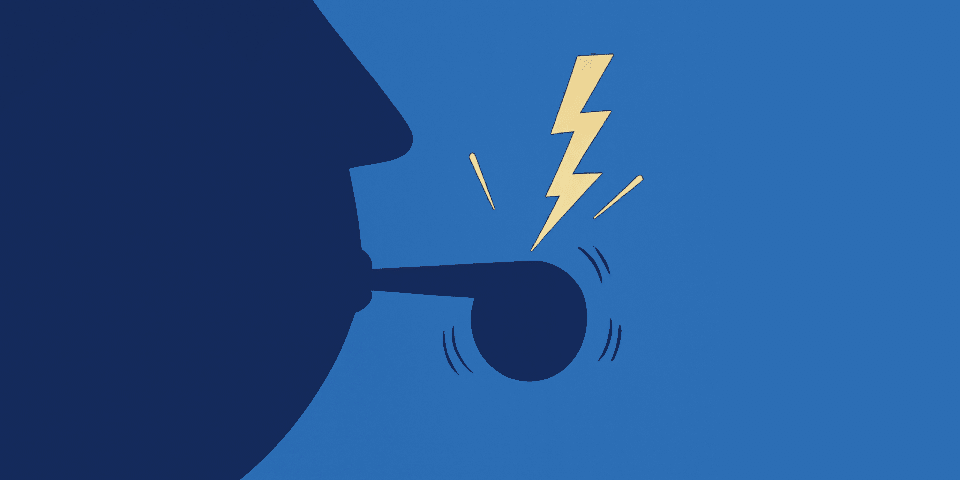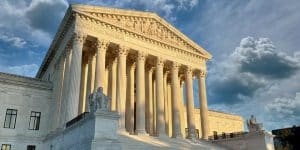Updated May 28, 2025
Understanding Whistleblowers: Their Role and Impact
Whistleblowers play a crucial role in maintaining transparency and accountability within organizations. They are individuals who expose unethical practices, illegal activities, or safety violations that occur within their workplace. This article delves into the definition of a whistleblower, the types of individuals who typically take on this role, the legal protections available to them, and notable examples that have shaped public discourse and policy.
What is a Whistleblower?
A whistleblower is an employee or insider who reports misconduct, fraud, or any actions that threaten public interest or safety. This can include a wide range of issues, such as financial fraud, environmental violations, or breaches of safety protocols. The act of whistleblowing is often motivated by a desire to protect the public or uphold ethical standards, even at the risk of personal or professional repercussions.
The Importance of Whistleblowing
Whistleblowers serve as a vital check on power within organizations. By bringing attention to wrongdoing, they help foster a culture of accountability and integrity. Their actions can lead to significant changes in policies, practices, and even laws, ultimately benefiting society as a whole.
Who Becomes a Whistleblower?
Whistleblowers can come from various backgrounds and positions within an organization. They may be:
- Current Employees: Individuals who witness wrongdoing in their workplace and decide to report it.
- Former Employees: Those who have left the organization but feel compelled to disclose unethical practices they observed during their tenure.
- Contractors or Consultants: External parties who have insider knowledge of the organization’s operations.
- Concerned Citizens: Individuals who may not be directly involved with the organization but have information about its misconduct.
Internal vs. External Reporting
Whistleblowers can choose to report misconduct internally, through designated channels within their organization, or externally, to regulatory bodies, law enforcement, or the media. The choice often depends on the nature of the wrongdoing and the perceived effectiveness of internal reporting mechanisms.
The Legal Landscape for Whistleblowers
Many countries have enacted laws to protect whistleblowers from retaliation. These laws aim to encourage individuals to come forward without fear of losing their jobs or facing other forms of retribution. In the United States, for example, various federal laws provide protections for whistleblowers in different sectors.
Key Protections
- Confidentiality: Whistleblowers often have the right to remain anonymous when reporting misconduct.
- Protection from Retaliation: Laws prohibit employers from retaliating against employees who report wrongdoing. This includes actions such as termination, demotion, or harassment.
- Legal Recourse: Whistleblowers may have the option to pursue legal action if they face retaliation for their disclosures.
Notable Whistleblower Cases
Several whistleblower cases have garnered significant attention and led to substantial changes in policies and public awareness. Here are a few prominent examples:
1. Mark Felt (Deep Throat)
Mark Felt, known by the alias "Deep Throat," was a key figure in the 1972 Watergate scandal. As an associate director of the FBI, he provided crucial information to journalists that ultimately led to the resignation of President Richard Nixon. Felt’s actions highlighted the importance of whistleblowing in exposing governmental corruption.
2. Karen Silkwood
In 1974, Karen Silkwood was a chemical technician who raised concerns about safety violations at a nuclear facility. After her whistleblowing efforts, she died under suspicious circumstances, leading to increased scrutiny of workplace safety and whistleblower protections in the nuclear industry.
3. Jeffrey Wigand
In 1996, Jeffrey Wigand exposed how tobacco companies knowingly manipulated nicotine levels in cigarettes to increase addiction. His revelations, publicized through a 60 Minutes interview and dramatized in the film The Insider, led to Congressional hearings and a $246 billion settlement with tobacco companies.
4. Chelsea Manning
Chelsea Manning, a former U.S. Army intelligence analyst, leaked a vast trove of classified military documents to WikiLeaks in 2010. The documents exposed controversial military actions and human rights abuses, leading to widespread discussions about transparency and accountability in the military.
5. Edward Snowden
In 2013, Edward Snowden, a former contractor for the National Security Agency (NSA), leaked classified documents revealing extensive surveillance programs conducted by the U.S. government. His disclosures sparked a global debate about privacy, security, and the balance between national security and individual rights.
6. Frances Haugen
In 2021, Former Facebook product manager Frances Haugen released internal documents showing that Facebook knew its platforms harmed teen mental health and amplified misinformation, but failed to act. Haugen testified before Congress and reignited discussions about tech regulation, ethics, and platform accountability.
The Process of Whistleblowing
If you are considering becoming a whistleblower, it is essential to approach the process thoughtfully. Here are some steps to consider:
1. Gather Evidence
Collect as much relevant information as possible to support your claims. This may include documents, emails, or any other evidence that substantiates the wrongdoing.
2. Understand Your Rights
Familiarize yourself with the laws and regulations related to whistleblowing in your jurisdiction. Knowing your rights can help you navigate the process more effectively.
3. Assess Reporting Channels
Determine whether your organization has internal reporting mechanisms, such as a whistleblower hotline or an ethics officer. If internal reporting is not viable, consider external options.
4. Seek Legal Advice
Consult with an attorney experienced in whistleblower protection laws. They can provide guidance on your rights and the potential risks involved in reporting misconduct.
5. Maintain Confidentiality
Take precautions to protect your identity and the information you possess. Consider using secure communication channels when sharing sensitive information.
The Role of Organizations in Supporting Whistleblowers
Organizations play a crucial role in fostering a culture that encourages whistleblowing. Implementing robust whistleblower policies and procedures can help create an environment where employees feel safe reporting misconduct.
Best Practices for Organizations
- Establish Clear Reporting Channels: Organizations should have designated channels for reporting misconduct, ensuring that employees know where to go with their concerns.
- Provide Training: Regular training on whistleblower policies and protections can help employees understand their rights and the importance of reporting wrongdoing.
- Encourage Open Communication: Creating a culture of transparency and open dialogue can help employees feel more comfortable coming forward with their concerns.
Conclusion
Whistleblowers are essential to promoting accountability and integrity within organizations. By exposing wrongdoing, they not only protect the public interest but also contribute to a culture of transparency. Understanding the rights and protections available to whistleblowers is crucial for anyone considering this path. As society continues to evolve, the role of whistleblowers will remain vital in holding organizations accountable and fostering ethical practices.
Consulting a Los Angeles whistleblower attorney will provide you with the necessary guidance and support to navigate the legal process effectively. If you’ve been denied your rights as an employee by your employer, time is of the essence, please seek legal advice promptly to maximize your chances of a successful outcome.
Call Setyan Law at (213)-618-3655 for a consultation.





